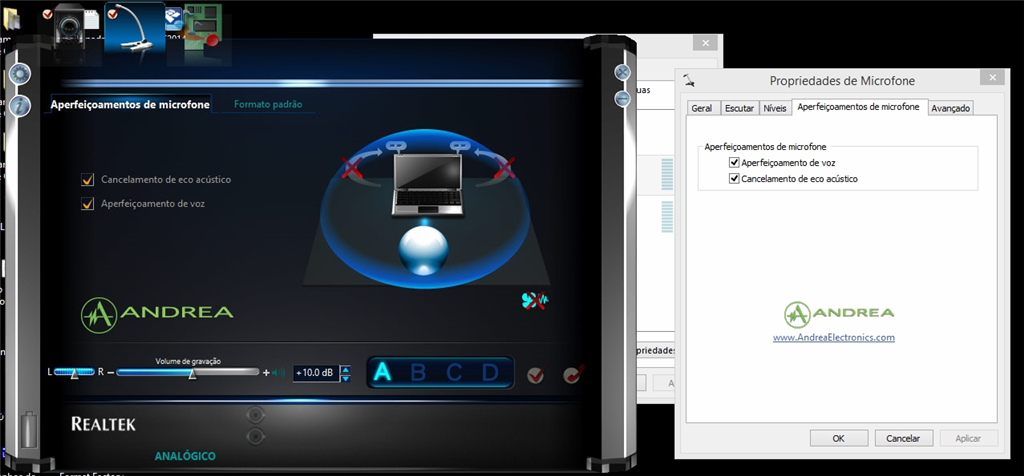Fonte: Application Error
Data: 11/01/2014 19:01:05
Identificação do Evento:1000
Categoria da Tarefa:(100)
Nível: Erro
Palavras-chave:Clássico
Usuário: N/D
Computador: bechog
Descrição:
Nome do aplicativo com falha: AUDIODG.EXE, versão: 6.2.9200.16579, carimbo de data/hora: 0x516361b1
Nome do módulo com falha: ntdll.dll, versão: 6.2.9200.16579, carimbo de data/hora: 0x51637f77
Código de exceção: 0xc0000005
Deslocamento da falha: 0x0000000000001f5d
ID do processo com falha: 0x5c
Hora de início do aplicativo com falha: 0x01cf0f0f45f8769d
Caminho do aplicativo com falha: C:\Windows\system32\AUDIODG.EXE
Caminho do módulo com falha: C:\Windows\SYSTEM32\ntdll.dll
ID do Relatório: dd9ba3f4-7b0b-11e3-be90-2c44fdfac142
Nome completo do pacote com falha:
ID do aplicativo relativo ao pacote com falha:
XML de Evento:
<Event xmlns="http://schemas.microsoft.com/win/2004/08/events/event">
<System>
<Provider Name="Application Error" />
<EventID Qualifiers="0">1000</EventID>
<Level>2</Level>
<Task>100</Task>
<Keywords>0x80000000000000</Keywords>
<TimeCreated SystemTime="2014-01-11T22:01:05.000000000Z" />
<EventRecordID>3387</EventRecordID>
<Channel>Application</Channel>
<Computer>bechog</Computer>
<Security />
</System>
<EventData>
<Data>AUDIODG.EXE</Data>
<Data>6.2.9200.16579</Data>
<Data>516361b1</Data>
<Data>ntdll.dll</Data>
<Data>6.2.9200.16579</Data>
<Data>51637f77</Data>
<Data>c0000005</Data>
<Data>0000000000001f5d</Data>
<Data>5c</Data>
<Data>01cf0f0f45f8769d</Data>
<Data>C:\Windows\system32\AUDIODG.EXE</Data>
<Data>C:\Windows\SYSTEM32\ntdll.dll</Data>
<Data>dd9ba3f4-7b0b-11e3-be90-2c44fdfac142</Data>
<Data>
</Data>
<Data>
</Data>
</EventData>
</Event>
============================
Nome do Log: Application
Fonte: Windows Error Reporting
Data: 11/01/2014 19:01:07
Identificação do Evento:1001
Categoria da Tarefa:Nenhum
Nível: Informações
Palavras-chave:Clássico
Usuário: N/D
Computador: bechog
Descrição:
Falha no bucket , tipo 0
Nome do Evento: APPCRASH
Resposta: Não disponível
ID do CAB: 0
Assinatura do problema:
P1: AUDIODG.EXE
P2: 6.2.9200.16579
P3: 516361b1
P4: ntdll.dll
P5: 6.2.9200.16579
P6: 51637f77
P7: c0000005
P8: 0000000000001f5d
P9:
P10:
Arquivos anexados:
C:\Windows\ServiceProfiles\LocalService\AppData\Local\WERDE63.tmp.WERInternalMetadata.xml
C:\Windows\ServiceProfiles\LocalService\AppData\Local\WERDF30.tmp.secure.hdmp
C:\Windows\ServiceProfiles\LocalService\AppData\Local\WERE24F.tmp.secure.dmp
Esses arquivos podem estar disponíveis em:
C:\ProgramData\Microsoft\Windows\WER\ReportQueue\AppCrash_AUDIODG.EXE_8d0e4431c51d13e4da275861965c2ea374c34ba_cab_1bb8e26a
Símbolo da análise:
Verificando novamente solução: 0
ID do Relatório: dd9ba3f4-7b0b-11e3-be90-2c44fdfac142
Status do Relatório: 4
Bucket com hash:
XML de Evento:
<Event xmlns="http://schemas.microsoft.com/win/2004/08/events/event">
<System>
<Provider Name="Windows Error Reporting" />
<EventID Qualifiers="0">1001</EventID>
<Level>4</Level>
<Task>0</Task>
<Keywords>0x80000000000000</Keywords>
<TimeCreated SystemTime="2014-01-11T22:01:07.000000000Z" />
<EventRecordID>3388</EventRecordID>
<Channel>Application</Channel>
<Computer>bechog</Computer>
<Security />
</System>
<EventData>
<Data>
</Data>
<Data>0</Data>
<Data>APPCRASH</Data>
<Data>Não disponível</Data>
<Data>0</Data>
<Data>AUDIODG.EXE</Data>
<Data>6.2.9200.16579</Data>
<Data>516361b1</Data>
<Data>ntdll.dll</Data>
<Data>6.2.9200.16579</Data>
<Data>51637f77</Data>
<Data>c0000005</Data>
<Data>0000000000001f5d</Data>
<Data>
</Data>
<Data>
</Data>
<Data>
C:\Windows\ServiceProfiles\LocalService\AppData\Local\WERDE63.tmp.WERInternalMetadata.xml
C:\Windows\ServiceProfiles\LocalService\AppData\Local\WERDF30.tmp.secure.hdmp
C:\Windows\ServiceProfiles\LocalService\AppData\Local\WERE24F.tmp.secure.dmp</Data>
<Data>C:\ProgramData\Microsoft\Windows\WER\ReportQueue\AppCrash_AUDIODG.EXE_8d0e4431c51d13e4da275861965c2ea374c34ba_cab_1bb8e26a</Data>
<Data>
</Data>
<Data>0</Data>
<Data>dd9ba3f4-7b0b-11e3-be90-2c44fdfac142</Data>
<Data>4</Data>
<Data>
</Data>
</EventData>
</Event>

